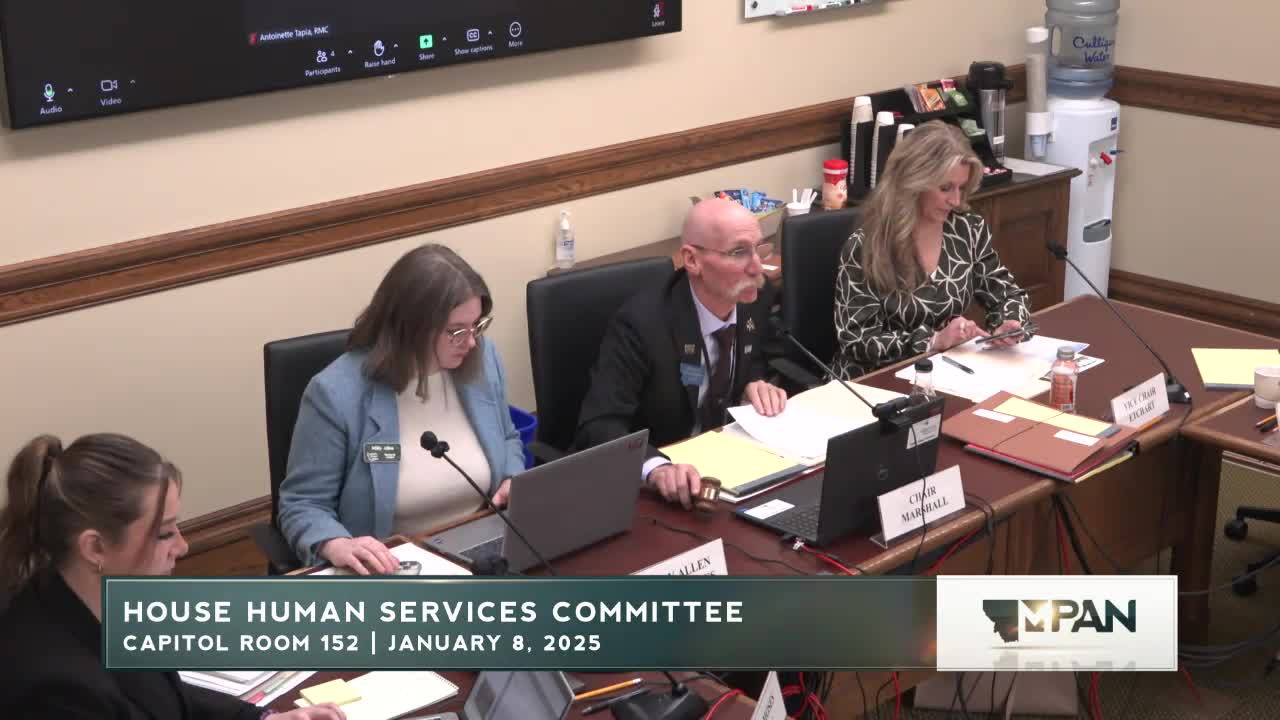Committee reviews bill to streamline statutes on temporary investigative authority in child-protective cases
Get AI-powered insights, summaries, and transcripts
Subscribe
Summary
Representative S.J. Howell opened the hearing on House Bill 77, saying the bill was developed by a multi-stakeholder CPS work group and is intended to clean up and harmonize statutes that govern investigations and court filings when child abuse or neglect is reported.
Representative S.J. Howell opened the hearing on House Bill 77, saying the bill was developed by a multi-stakeholder CPS work group and is intended to clean up and harmonize statutes that govern investigations and court filings when child abuse or neglect is reported.
"When a report of abuse or neglect is made, it comes in through centralized intake. The department has 60 days of authority to investigate that report," Howell said, and added the bill aims to eliminate duplication between a 90-day temporary investigative authority filing and the umbrella emergency protective services (EPS) statute that already grants needed authority in court filings.
Proponents, including the Department of Child and Family Services, the Office of Public Defender, county attorneys and a legislative working-group chair, said the bill clarifies timing and reduces inconsistent practice between jurisdictions. Nikki Grossberg, division administrator for Child and Family Services, told the committee the department's investigative authority is codified elsewhere in Title 41 and the temporary investigative-authority section is redundant: "I do believe this is the right direction to begin cleaning up statute and creating efficiencies and clarity across the state," Grossberg said.
Several informational witnesses described current court procedures and the statutory safeguards that remain. Kelly Driscoll, family defense bureau chief for the Office of Public Defender, explained that removal of a child triggers an emergency protective services hearing within five business days to determine probable cause for continued removal. Heather Webster, deputy chief county attorney for Yellowstone County, said her office does not frequently file temporary investigative authority and would continue to file EPS and temporary legal custody petitions where legally justified.
Representative Howell said the bill adds a 90-day time frame to the EPS statute so that the statutory timelines are consistent and cases do not linger: "There's agreement amongst the players that 90 days is plenty, and there's also agreement... that CPS cases should be resolved in a timely fashion." Senator Dennis Lehi, chair of the interim working group, and other proponents said the change reflects modern practice after earlier statutory reforms that established a five-day initial EPS hearing.
Committee questions focused on whether repealing the temporary investigative authority statute would change the court's power to order placements or removals and on how the bill treats Indian Child Welfare Act (ICWA) concerns. Witnesses said judges retain discretion to order removals or placements under existing law and that ICWA burdens and related statutes remain in effect elsewhere in Title 41; Representative Howell confirmed language removing a reference to temporary investigative authority occurs because the separate petition type is being removed from the show-cause hearing section.
No formal vote on House Bill 77 was taken at the hearing; witnesses and legislators characterized the measure as statutory cleanup to reduce duplication, add consistent time frames, and preserve the existing protections and processes for families and courts.
Ending
Supporters described HB 77 as a technical cleanup that keeps investigative authority under EPS, adds a 90-day time limit, and aims to make practice more consistent across jurisdictions; the committee asked clarifying questions but did not act on the bill during the hearing.
